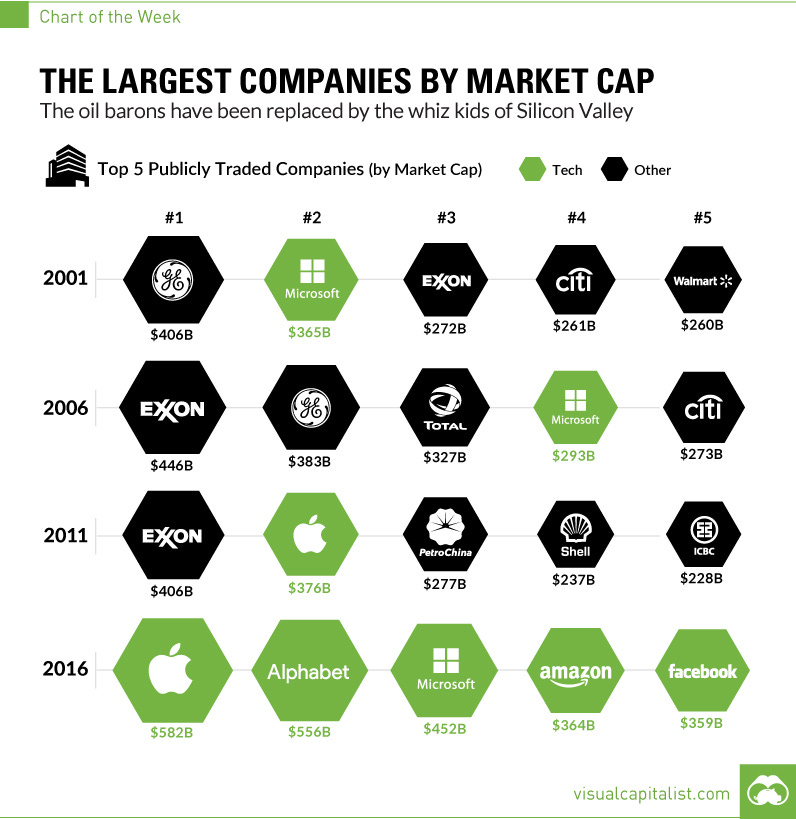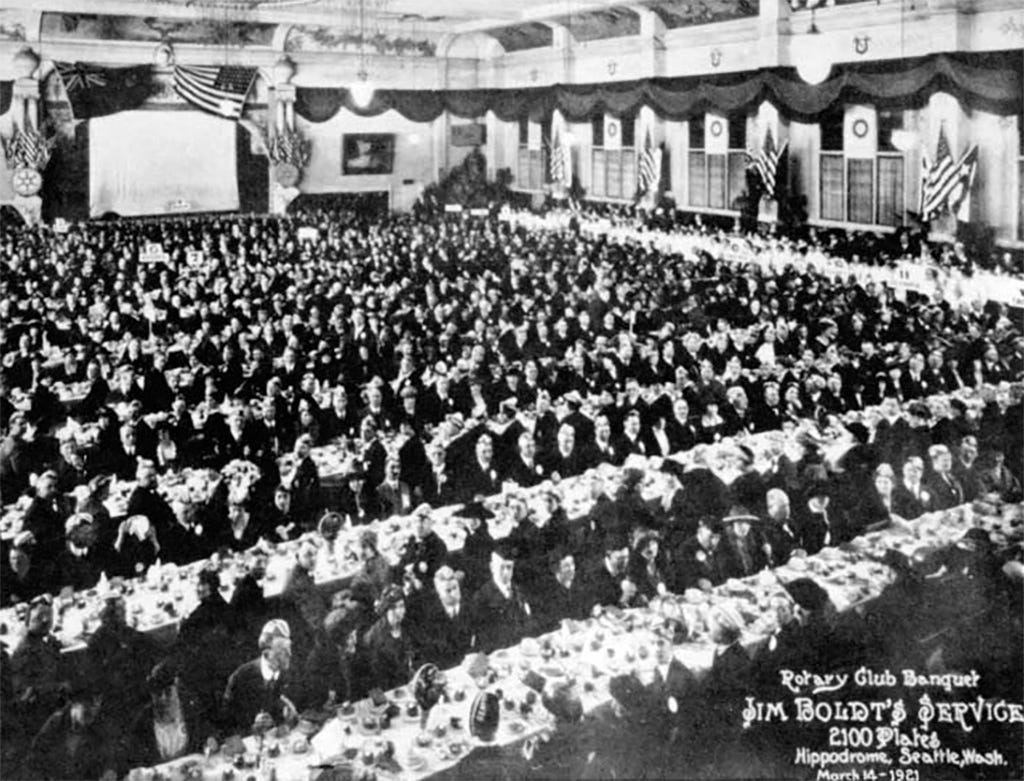Most leaders in technology, even those in the very top echelons, understand politics in America the way most Americans do – as a spectator sport. But that is a misunderstanding.
Americans' participation in their democracy has atrophied greatly over the past 70 years. In the mid-1950s, almost half of Americans participated actively in their system of self-government – through their church, at the Rotary club, an NAACP chapter, Scouts, or a Bowling Club. The living memory of a robust small-d democracy in America is now dwindling away in the dimly lit and emptied bowling alleys, church basements, and Elks Lodges.
What’s replaced democracy is a highly consumerized ritual of elections amped up by overbearing political news. This is the ‘consumer’ experience of politics that we all know feels broken. It is broken.
But the principals in politics, the political and policy leaders with their hands on the levers, understand politics as something completely different.
Real politics lives on but it is craftily obscured behind a curtain. The entrance price to see how it works is:
A relationship with an elected official with power – as an advisor, a friend, a donor, or all of the above
A guide who can walk you through the rituals and approaches of those with political power
With those two things, a relationship and a guide, you are free to enter the threadbare and somewhat grimy casino of modern American political power. We call this world ‘enterprise politics’.
But unless you know the games well and play with a card counter’s even keel (and have a bit of luck!) you will almost certainly leave a loser. The house odds today are stacked quite unfavorably against progress.
Real democracy, the kind you can get your hands on, is very much alive, if unwell.
If you want to learn how enterprise politics works, then subscribe to this newsletter.
We are writing specifically for the tech community, but our hope is that experts from all backgrounds (politics, policy, business) who want to improve American governmental outcomes will find value in it.
Why we are writing the Modern Power newsletter
We are writing about power explicitly because it is the best short-hand to explain politics. Most of us are not accustomed to looking at the world through the lens of power. It feels a bit ignoble. But in politics, studying power is the only way to understand how decisions actually get made.
Professionals in politics see power as the primary way they understand and interpret the physics of the political system they operate in. To follow the action, you have to break down politics and policies into a simple read of who has the power to make & influence which decision. Once you do this, what was a maddeningly irrational and oblique system because simple and highly rational.
Misha and I, together with 100+ tech leaders, are on a journey to learn:
How power works in America
What power we have access to, and
How to deploy our power to improve governmental outcomes
The leaders we work with have successfully scaled startups from zero to an industry-changing force within a handful of years.

We are figuring out how to adapt our playbook for driving scaled impact via startups to politics. Our experience is 70% of the playbook applies beautifully, but if you don’t get the remaining 30% right you will crash and burn. We are figuring out the remaining 30%.
The tech leaders we work with feel a moral imperative to use the resources they have access to — talent, money — to help get America off its current trajectory of sclerosis and highly visible failure, and on a renewed cycle of improvement for all Americans. Instead of doing this work in a vacuum, we plan to learn in public, partnering closely with policy experts and political leaders to advance our projects.
We have had early traction with the YIMBY movement, which is winning the war of ideas on the left and is accruing important policy outcomes to begin to unwind the housing crisis in California. California YIMBY, which has been central to this work, is a prototype of our approach. We see an opportunity to replicate and scale this “venture-tech applied to public problems” playbook across a handful, then dozens of different policy areas at different levels of government (local, state, federal).
We are focused first on California because:
It is where we live
The gap between our stated values and governmental outcomes is so large — if we can’t make government effective in California, what does that mean for the rest of the country?
Driving governmental outcomes in California is an opportunity to make impact at the scale of the 5th largest economy in the world
As we scale up our network of policy and political entrepreneurs, we hope to replicate the culture of mentorship and published best practices that meaningfully accelerated the startup software industry over the past two decades. We are inspired by the simple but profound impact of publications such as avc.com, feld.com, and paulgraham.com — their authors mentored the generation of leaders who built and scaled the internet software ecosystem from the post dotcom era, rekindling it into what is now an unstoppable force for progress through almost every industry.
In governmental design, we hope to build on high-signal online publications by the Niskanen Center, Slow Boring, and Marginal Revolution, whose authors are lighting up the intellectual paths for policy entrepreneurs to follow.
But our beat will be different. We plan to write from an operational perspective – how to take great ideas and make them real via politics. Our target readers are proven operators from tech who are at the basecamp of the learning curve of politics and policy entrepreneurship. But we hope that our writing is accessible to anyone who is interested in studying how policy ideas are turned into governmental outcomes.
Every time we learn something important — or get somewhere in our journey — we will tell you about it in this newsletter. That's what this space is: a record of our discoveries as our community from tech learns how to be effective in American politics.
We will attempt to write in a clear, useful, and actionable way with the goal of pulling more practitioners into the fold. If this works, it will help bootstrap our now small community into a scaled ecosystem over time. We are copying the playbook of the online brain trusts for startups that coalesced in the mid-2000s (think YC) and that exploded into a vibrant ecosystem.
What has grown to hundreds of billions of dollars of market cap began with lo-fi blog posts by earnest people trying to puzzle through difficult and murky intellectual terrain. In the end, the world turns on leaders and their ability to action ideas. Ideas that can be posted to the Internet for everyone to read.
So you are going to publish behind-the-scenes knowledge of power politics in American government?
Yes. But in the spirit of avc, not TechCrunch.
We will write and publish deliberately and thoughtfully. We partner closely with political leaders and organizations so there will be subject areas we can’t discuss directly. We will stick to the high-level knowledge and practitioner advice – how to understand the system, how to be effective, how to manage X problem, things to look out for, etc.
We see this as roughly analogous to how venture capitalists blog. They don’t air dirty laundry. Instead, they translate key lessons into posts that teach entrepreneurs how to be successful in an undertaking that 1 in 1000s succeed at. The substance of their publishing is devoid of drama and particulars and rich in expertise and wisdom. This makes them niche, but highly influential publications.
Originally venture partners considered this knowledge to be proprietary IP that gave them an edge. But in fact, publishing knowledge – in effect open-sourcing it – turned out to be a highly leveraged one-to-many way to build relationships with entrepreneurs. This gave the publishers of the knowledge an edge in the market for investments. Entrepreneurs chose to work with the experts who taught them how to succeed. They established a norm of writing down the secrets to the venture capital and startup universe on a blog for any interested party to read. This knowledge, key to unlocking billions of dollars of private wealth, is now in the public domain.
Of course, there will be a downside to us publishing the obscured knowledge in politics on the internet — political opponents may try to weaponize what we publish against us. But we expect that the upside will far outweigh the cost.
We are inspired by what the progressive movement accomplished one hundred years — driving a burst of renewal in American democracy
The progressives didn’t just win in politics, they transformed the political system of the United States government.
Power systems are the tectonic plates beneath the surface that dictate the playing field of power. We must understand them as well in order to operate successfully in politics and policy over the long term. And we must improve the systems of power themselves – change and modernize them – to get our system of self-government on a sustained path of renewal.
The frame of ‘modern power’ applied to American government feels a bit ironic because the systems of power that leaders in government and policy operate in are indeed very old. Most of them were established lifetimes before current leaders began operating in them. These systems change and warp slowly. The totems of power – inscribed desks in U.S. Congress, the oval office – are meant to be ageless.
Yet, systems of power in the American government do change. They must change. Our reading of history is that systems of self-government only succeed with renewal and generational change of the systems of power themselves.
The last burst of renewal of American power systems was roughly one hundred years ago when the Progressives rewrote virtually every city charter and majorly updated local, state, and federal systems of power.
If you look in the right places and squint your eyes, you can begin to see what the progressive movement of the internet era would look like.





